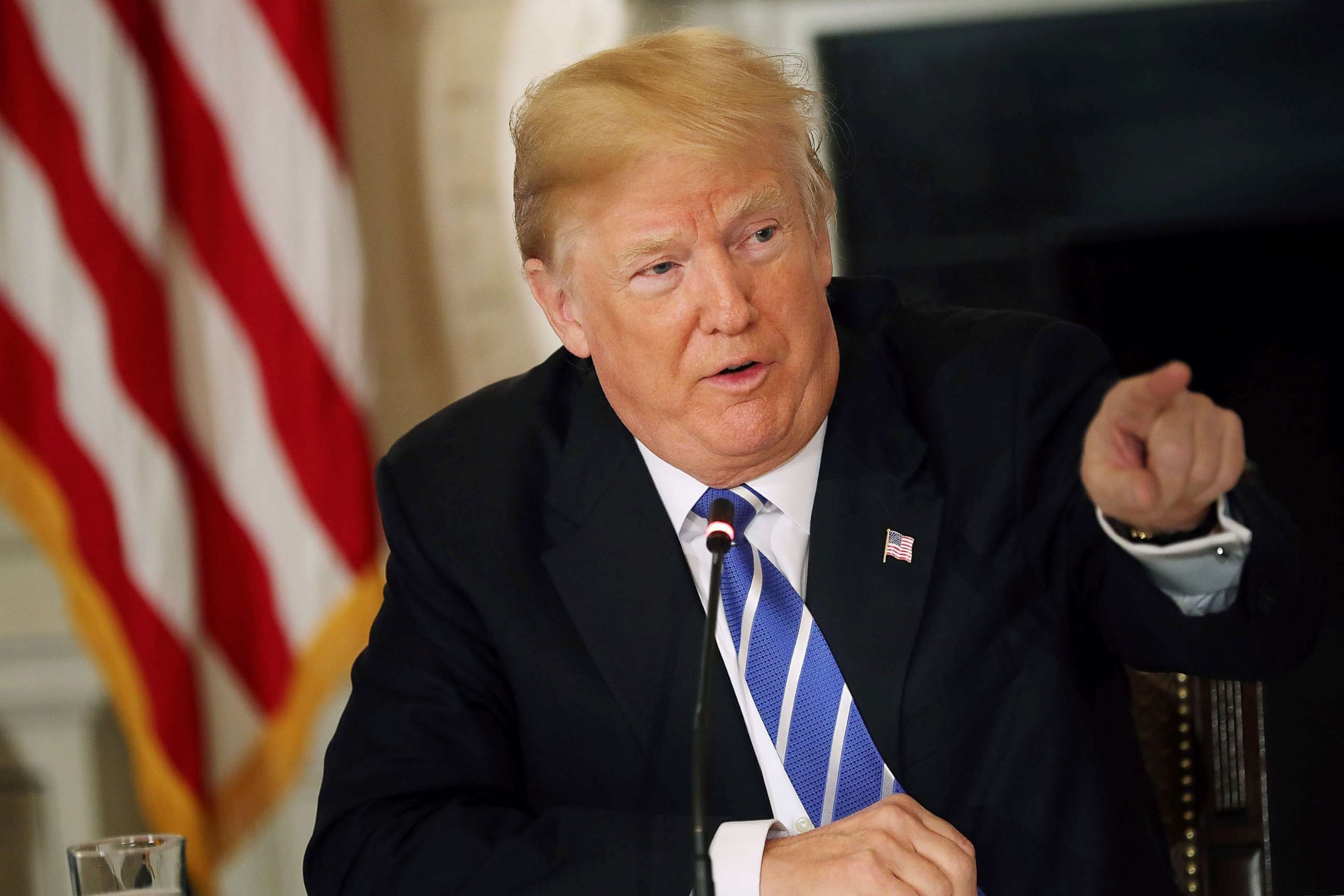Mulvaney defends the White House budget: 'Does it balance? No'
The White House increases spending on defense while making cuts to entitlements.
— -- Director of the Office of Management and Budget Mick Mulvaney said the $4.4 trillion budget proposed by the White House would increase the federal deficit and would not balance the budget.
"Does it balance? No it doesn't," Mulvaney told reporters on Monday. "I couldn't tell you using solid numbers that we could balance the budget in 10 years."
Mulvaney said that the fiscal year 2019 budget offered Monday should be seen as a messaging document — and not as a directive from the administration on how Congress should allot funding during a briefing with reporters at the White House.
The White House's budget increases defense spending with a request for $686 billion for 2019, while making cuts to entitlement programs like Medicare, Medicaid and the Supplemental Nutrition Assistance Program, more commonly known as SNAP.
Also included in the budget is $23 billion for border security, with much of that money going to fund Trump's border wall. Mulvaney said his office operated under the assumption that Congress will actually make a deal on helping extend protections for the the thousands of young undocumented immigrants known as "Dreamers". Part of that deal, Trump has said, must include money to pay for a the wall along the Mexico- U.S. border.
Mulvaney highlighted some of the new ideas the administration is proposing under the new budget.
For example, the budget calls for the SNAP program under the USDA to introduce a initiative that would operate similar to "Blue Apron" food delivery services, in which the government would provide healthy, boxed up food items to people currently using food stamps.

He touted the administration's work on trying to reduce the cost of drug prices and end the opioid epidemic. To lower drug prices, Mulvaney said the budget directs the FDA to push for more generic drugs, so drugs like EpiPen can be offered at a more affordable price.
"There's a major commitment from us here to increase the flow of generics," said Mulvaney.
To combat the opioid epidemic, the administration is asking for $3 billion in funding this year and $10 billion next year. Part of that funding would go towards expanding medical services for people facing addiction and adding coverage of substance abuse treatment to Medicare.
On Tuesday, Mulvaney takes the budget to Capitol Hill where it's unlikely to be well received by deficit hawks. Mulvaney, a former Tea Party Republican, said on CBS News on Monday that if he were still in Congress, it's not something he would support.
"I will always be a deficit hawk," said Mulvaney. "I am today, I was yesterday, I am tomorrow...these are the cards we've been dealt."



